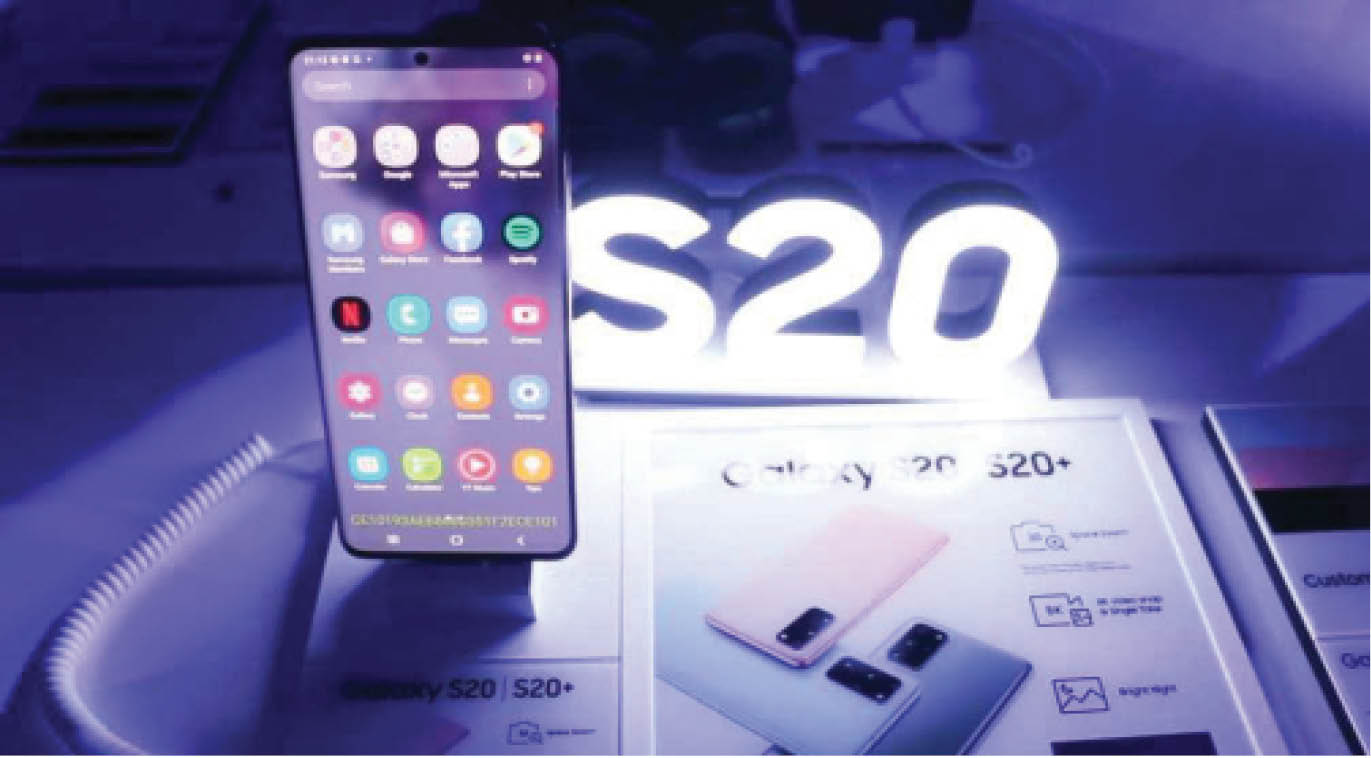The level of insecurity across the country is making every law-abiding Nigerian to be extra vigilant about their lives and belongings.
One of the things people do not want to lose now is their mobile devices.
- ‘They invaded staff quarters before entering hostels’ – witness speaks on attack at Niger school
- How bandits are turning Kaduna communities to ghost towns
Not the devices per se, but the documents and vital information stored in those devices are what everyone dreads to lose.
Now, every second, we have to assume that our information is at risk and therefore take steps to protect our data and our devices. There are some tips tech experts have come up with to help secure our vital information and our mobile devices, especially those with Android and iOS operating systems.
Do not save your passwords on your device
Many people save their passwords to online services and sites on their devices, but they do not seem to consider what could happen if someone accesses their phones. For your security, do not store important passwords on your device.
Use android’s built-in security features
If you are running on Kit Kat or Lollipop, there are both screen lock and encryption functions for increased security. There are several types of screen locks such as password, pin, pattern and face unlock, and you can find them in your android settings. Try to use patterns of PINs that are difficult for other people to guess, but that you’ll easily remember.
Lock your apps
Lock your apps, especially the ones containing private information that you do not want anyone to see. You can use a free app like App Lock to do this.
And to add more security, do not use a combination of a pin or pattern lock that can be traceable from the smudges of your screen – yes, people can trace this.
Why app permissions are important
Before installing an app from Google Play, a list of requested permissions will pop up to show you what permission the app requires. Apps require permissions to do things but know that not all of them are necessary.
Always read through the permissions to make sure they make sense and correspond to what the app actually does. For example, an alarm app does not require access to your text messages. But know that not all apps in the Play Store are safe, so beware.
Secure your network
Do not use public WiFi when you want to do something that transmits sensitive data, such as online banking. Hackers can easily sniff out your packets and translate it into actual data of your private information, i.e. your passwords.
But you can protect your information by using apps like Hideninja VPN so that your outgoing connection is always encrypted, making it harder for anyone to sabotage your data. If you suspect that your device is being attacked, WiFi Protector can help fend off these attackers.
Use a mobile security app
It will make your life easier to have an app that handles most of your security. Find a mobile security app that you are comfortable using like Lookout Security & Antivirus or avast!
Back up your data
It is imperative in this day and age that you back up your important data. If your device is lost, stolen, damaged or hacked, and you have not backed up the data, you may still be forced to do a remote wipe to prevent the person from accessing your information. But this will mean that you will lose all your information in your device.
Track your lost device
If you have a backup already but you really want to get your lost device back, there are many device-tracking apps for android that can help you locate your lost or stolen device, and some can even remotely activate your phone’s Global Positioning System (GPS).
Enable remote wipe
When you are sure that you cannot retrieve your lost android device, you can wipe all the vital documents there remotely. You can do this by using any remote wiping app.
iOS devices
While Apple’s iOS system is pretty secure, there are ways to make sure that your iPhone and other devices operating on iOS are as secure from hackers as they can be.
If you have concerns about the safety of your private data, sensitive information including website logins, email addresses, text messages and even photos and videos, there are tips experts have reeled out to help.
Make sure iOS is up to date
Make sure you are always running the most recent iteration of iOS, including smaller ‘dot’ or point updates, Lewis Painter, a tech expert said in www.macworld.com.
This is wise, he said, because hackers occasionally find flaws in Apple’s coding which they can exploit, potentially giving them access to your personal data. iOS updates are Apple’s way of combatting the exploits by patching holes and implementing better stability enhancements.
For example, back in January, 2019, Apple issued a security update that addressed vulnerabilities that could lead to iPhones and iPad being hacked.
To update to the latest version of iOS, open the Settings app and tap General > Software Update. You will either be assured that you are already running the latest version, or prompted to download and install something newer.
Activate Find My
Another step you can take in the war against hackers attacking your iPhone is to activate Find My iPhone.
Find My iPhone is handy because, if you lose your device, you can log on to Find My iPhone from another Apple device (or via the web on a Mac or PC) and locate your iPhone – or, more importantly, remotely wipe your personal data from the lost phone. This means that even if the hacker does manage to gain access to your lost/stolen device, they will find no valuable data.
To turn on Find My iPhone follow these steps:
Open Settings and tap your name/picture at the top of the screen.
Next tap iCloud.
Scroll down and tap Find My iPhone. Tap on that.
Now make sure the toggle by Find My iPhone is green.
There’s a feature in iOS that makes it possible for your iPhone to reveal its location to you even if it is offline. This is possible because your iPhone’s Bluetooth signal can be detected by Bluetooth beacons and relayed back to you, even if it isn’t connected to Wi-Fi or a mobile network.
Enable Offline Finding if you want your iPhone to be discoverable in this way – it is a good idea to as it will make it possible to locate – and crucially – wipe your iPhone if it falls into the wrong hands.
To remotely wipe an iPhone once located with Find My iPhone, follow these steps:
Log in to the Find My app (or iCloud website).
Tap on Devices.
Select your iPhone.
Tap Erase iPhone and confirm the action.
The next time it has an internet connection (if it does not already) it will automatically wipe itself.
Create a longer passcode
You may have heard of a hacking tool called GrayKey that was being used to crack iPhone and iPad passwords. It’s understood that the tool was being used by law-enforcement agencies, and could crack a four-digit passcode in a couple of hours. A six-digit code can be cracked in a few days.
The device, which needed to be plugged into a iOS device, could disable the usual delays and locks (one minute after six incorrect guesses, five minutes after seven and so on) that would normally stop anyone from brute-forcing their way past a passcode.
While you probably don’t have any reason to not want the police or government agencies to hack into your phone, the real concern here was that if it is possible for the GrayKey device to hack into your phone this way, it’s highly likely that there will be similar devices and hacks available to criminals.
Luckily Apple blocked the GrayKey tech back in iOS 12, however, should such a thing become possible again – and it is sure to – here is what you should do to protect your phone:
Choose a long passcode: one that is longer than six digits. It could take a few months to hack an eight-digit pin, and a 10-digit pin could take a decade to crack!
Use a passphrase containing words, rather than numbers. But use random words that would not normally appear together.
While passcodes only use numbers 0-9, a passphrase includes numbers, letters, symbols and case-sensitivity which should make your iPhone a lot harder to break into – although it may take a little longer to unlock your iPhone when you want to use it.
You might be thinking that your phone is secured by Face ID or your fingerprint, but remember your phone can still be unlocked with your passcode, so if that’s 0000 you have a reason to be worried!




